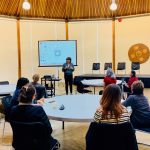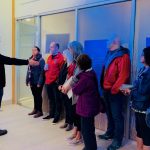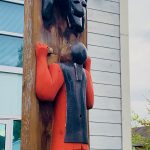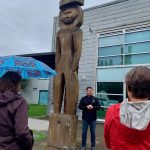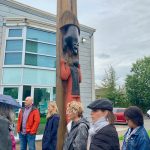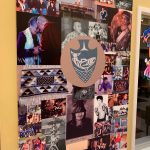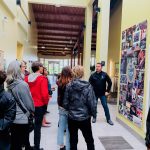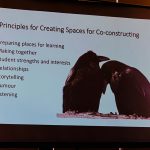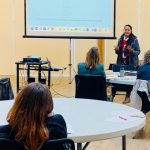Indigenous Teaching Intensives Series
Session 1: Learning from Land and Place
Thursday, September 12th, 2019 began with participants gathering in the Musqueam Cultural Pavilion, located on the traditional, ancestral, and unceded territory of the Musqueam people. Participants were welcomed onto the land by Musqueam community members and given a debrief of the day by Dr. Jan Hare, which was followed by coffee and conversation before the first activity of the day—the Musqueam cultural tour—commenced.
Council member Morgan Guerin then introduced and took participants to an on-site installation within the Pavilion, called c̓əsnaʔəm, the city before the city, where he shared personal anecdotes and pieces of community knowledge about the development of and collaboration involved in the project. Partnered with the Museum of Anthropology and the Musqueam of Vancouver, this installation tells the resistance story of the ancestral burial site belonging to the Musqueam in what is colonially known as the neighbourhood of Marpole. Participants were invited to spend time with the installation, listening to audio recordings, perusing artefacts and special cultural objects, and engaging with the visual representations and photographs featured prominently in this multi-media exhibition.
Participants also toured the Musqueam community with Guerin’s guidance, learning about the house poles in front of the Musqueam Community Centre. Visiting the inside of the Centre, participants heard about the success of the sports teams to which many Musqueam youth belong. Everyone returned to the Pavilion for lunch prior to an afternoon of presentations.
The panel discussions included University of British Columbia (UBC) scholars such as Native Indian Teacher Education Program (NITEP) instructor Johanna Sam; Associate Professor in the Faculty of Education’s Department of Curriculum and Pedagogy (EDCP), Cynthia Nicol; and Assistant EDCP Professor, LeAnne Petherick with colleague Moss Norman from the School of Kinesiology. All presented on place- and land-based teaching and learning, discussing concepts such as relational ontology, consensual relationships, the ethics of co-constructing, and the rights of land to be protected and sustained.
The Intensive closed with a circle conversation, where participants in all roles at UBC were encouraged to think about how to move forward in personal teaching and learning practices with the knowledge acquired from the day. For many, the event symbolized the potential of respectful connectivity through, and engagement with, Indigenous Knowledges, land, and practices, for the benefit of all who were involved and contributed.
The Transformational Inclusive Pedagogical Practices (TIPP) Project expresses gratitude to the Musqueam First Nation for hosting this event, and thanks Lynne Tomlinson and colleagues at the Office of Indigenous Education for all the organization that went into making this event a success.
For more information, please visit:
The Office of Indigenous Education’s Indigenous Teaching Intensive Series: indigenous.educ.ubc.ca/teaching-intensives
TIPP’s parent website: educ.ubc.ca/tipp
